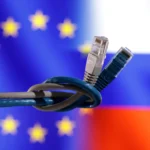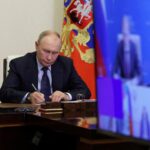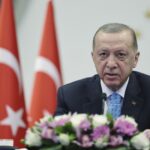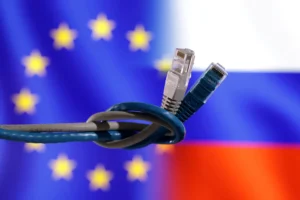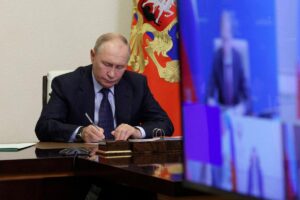Experts in an interview with the Voice of America Russian Service discuss whether the Russian authorities will be able to conduct activities in Africa that Yevgeny Prigozhin’s mercenaries used to do
The Wagner group, which in recent years has been viewed by the West as a serious instrument of Russian influence in Africa, may leave this continent. Signs of a possible curtailment of the operations of Yevgeny Prigozhin’s mercenaries after his failed rebellion in Russia are reported by the African media.
Between 500 and 600 Russian mercenaries have been sent to Russia from Bangui, the capital of the Central African Republic (CAR), over the past week, according to Jeune Afrique. Journalists also suggest that the continued stay in the CAR of Vitaly Perfiliev, a security adviser to the President of this country, Faustin-Archange Touader, associated with PMC Wagner, is in question.
After Prigozhin’s rebellion, as the authors of the publication in Jeune Afrique suggest, Moscow may replace Perfiliev with someone connected not with the former “Kremlin chef”, but with the Russian Ministry of Defense.
At the same time, the leadership of the Central African Republic has not yet confirmed all these movements: Fidel Guandjika, an adviser to President Touadera, told NBC News that in recent days there have been “no changes” in the presence of the Wagner group in the country, and Vitaly Perfilyev is still “in country.”
From Mali, where PMC Wagner is also present, such news has not yet been received.
However, The Wall Street Journal reported that immediately after Prigozhin announced the march on Moscow, employees of the Russian Ministry of Emergency Situations flew to Mali. They assured the country’s leadership that the “Wagnerites” who were in Mali were going into direct subordination to the Russian authorities.
The same conversation took place between representatives of Moscow and “general” Khalifa Haftar in Libya, according to the British newspaper Guardian. According to her information, received from a former high-ranking Libyan official who was personally aware of this meeting, four days after the “Wagner March” an envoy from Russia flew to Moscow in Benghazi.
The message to Haftar from the Kremlin was encouraging: more than 2,000 Wagner fighters will remain in the country.
“There will be no problems. There may be some changes in the sense of leadership, but the mechanism will remain the same: people on the ground, financial intermediaries in Dubai, contacts and resources going to Libya. We are not going anywhere, ”the Guardian quotes the meaning of Moscow’s message to the head of the forces opposing the Libyan government.
However, other Western media suggest that the “Wagnerites” – at least those who were taken out of the Central African Republic – will be put through a selection procedure, during which those who wish will sign a contract with the Russian Ministry of Defense, and those who refuse this can be released “home, to their relatives “.
Moscow calmed African partners and quite publicly: already on June 26, Russian Foreign Minister Sergei Lavrov said that “in addition to relations with this PMC, the governments of both the Central African Republic and Mali have official contacts through their government with our leadership.”
Lavrov recalled that “several hundred servicemen are working in the CAR as instructors,” and said that this work would be continued.
Whether official Russian structures will be able to pick up the fulfillment of the tasks that were assigned to the mercenaries of the Wagner group in African countries – experts on Africa and security experts argue about this in an interview with the Russian service of Voice of America.
The Wagner Group: The fine line between private and public
Experts are now arguing about where Yevgeny Yevgeny Prigozhin’s personal initiatives ended in Africa and the interests of the Russian authorities themselves began.
Yan St-Pierre, director of the German-based security research organization MOSECON , says in an interview with Voice of America that “wherever the name of the Wagner group sounded, it was an extension of the operations of the Russian special services, be it the GRU or the FSB.
“We know, for example, that in Mali there was a very close connection between the GRU units and the activities of the Wagnerites,” continues the director of MOSECON. – And if we extend this example to other organizations under the Wagner brand – and there are dozens of them – then they are all connected in their promotion of the pro-Russian agenda. So the changes can be made on paper to get away from the name Wagner PMC, but in reality all these organizations and assets are already part of the Russian Ministry of Defense and the Russian special services.”
“All this has taken various forms over the past ten years, from Ukraine to Africa. Wagner was very closely associated with the Russian state, and President Putin even openly admitted this recently, saying that the state directly gave about a billion dollars to the Wagner group, and another billion to Yevgeny Prigozhin’s Concord company, through which the activities were also financed. the Wagner group. The question remains: to what extent was the Wagner group integrated into state structures? But no matter what new name for these operations appears, the operations themselves will remain the same as before,” Jan St-Pierre is sure. Ernst Hogendoorn,
a senior Atlantic Council expert in Washington, does not quite agree that the Wagner group and its activities were simply an extension of the activities of the Russian special services .
“I have a feeling that many of Prigozhin’s enterprises in Africa were organized not by the Russian state, but by him personally. He was engaged in cases in which Russia saw benefits for itself, but with proposals to do this and that, he himself came, and someone did not instruct him to do it. So he expanded his presence in Africa. The influx into Russia of what he mined in Africa was beneficial to Moscow, as well as the fact that the “hand of Moscow” had a tangible presence on the continent, albeit in the form of a private company, ”notes Hogendoorn .
The Atlantic Council expert believes that in Africa, Prigozhin’s structures were self-supporting: “The Russian authorities did spend a lot of money on the Wagner group in Ukraine and possibly Syria, but in Africa, apparently, Prigozhin and his people earned their own money in sub-Saharan Africa. Wherever the Wagner Group operated, under one name or another, it provided services in exchange for valuable concessions to mine gold and other minerals. And there is no answer to the question of who will dispose of it – and Russia will certainly want to keep it under its control – if Prigozhin’s structures are no longer there.
Loyalty of the “Wagnerites” to the Kremlin – how much has it been preserved?
Ernst Hogendorn suggests that the “transfer of affairs” from the Wagner group to Russian official structures can be carried out in several ways:
“Maybe some other oligarchs will enter the business on behalf of the Kremlin, or maybe the Wagner commanders and their people in as now private individuals will continue this activity. I also admit that the GRU will try to take all this under its control. These concessions remain a source of income for Russia, although one can guess how much of their share the state received, and how much – Prigozhin.
But if the official structures, which are now more preoccupied with the war in Ukraine, try to replace the structures of Prigozhin in the capacity in which he acted in Africa, then these efforts may be ineffective.”
But even if the Wagner group worked mainly in the interests of the Russian state, will its mercenaries be guided by these interests in the future? And how loyal to the Kremlin in their actions will those who can replace Yevgeny Prigozhin’s wards in Africa be?
Tor Bukkvoll , an expert at the security research organization in Oslo, believes that the Kremlin may have doubts about the loyalty of both the several thousand Wagnerites in Africa and their GRU handlers:
“It’s hard to imagine that Prigozhin went on his rebellion only under the influence of his ideas about how much people support him in the structures of Russian power,” Buckwall said .
In his opinion, “of course, Prigozhin could be wrong about the amount of such support, but he could have support in certain circles in Moscow. It is worth remembering that the GRU had its own special relationship with the Wagner group, and there is reason to believe that even when this group was created, it was done under the supervision of Russian military intelligence.
The expert also noted that there were also rumors that a special department was even created in the GRU, which was supposed to oversee the Wagner group.
Tour Buckwall suggests that because of their actions in Syria and Ukraine, the Wagnerites have gained a little more autonomy from the GRU and official Russian structures in general, but connections – and perhaps good working relations – have remained: “People in the GRU could more sympathize with the Wagner group than, for example, the leadership of the Ministry of Defense – because in military intelligence they were better acquainted with the real state of affairs on the front line.
Are the “Wagnerites” a “sleeping threat” for the Kremlin, including in Africa?
Thor Buckwall answers: “Of course, the Wagner mercenaries in Africa were too far from the events unfolding in Russia during the rebellion. But we have seen reports that ex-Wagner fighters in Russia have been sent messages to be on alert. And many of these people had combat experience. In any case, there was a big panic in Moscow about all this, it was obvious.”
Moscow will try to maintain Yevgeny Prigozhin’s “network of influence”
Jan St-Pierre recalls how the organizations united in the network created by Prigozhin in Africa functioned:
“The Wagner Group was a private provider of military services, and this allowed people who were just mercenaries, work under the “roof” of some formal structure.
They organized companies with different names, but the services were the same. Sometimes they simply took over already existing objects with registration and legal personality, and they did not have to create anything new.
This allowed both money laundering and the creation of a network of influence and property to advance Russian interests. I think that Moscow is unlikely to dismantle the schemes that work, it will most likely want to integrate them into a new shell of its presence in these countries.”
At the same time, a security expert from Germany emphasizes, “African governments have always been sure that through the Wagner group they still, one way or another, interact with the Russian state.”
“In addition, Russia spent propaganda efforts to show African countries that it came to help them, so changing the Wagner brand to an official Russian presence would not be perceived as something negative,” suggests Jan St-Pierre.
Ernst Hogendorn, in turn, believes that everything can generally remain the same, it will just be controlled from another place:
“The fact that the Wagner rebellion in Russia failed does not necessarily mean that the presence of these mercenaries in Africa is completely stop. In reality, the question is: how will the forms of this presence change?
We can imagine a scenario that Yevgeny Prigozhin will nevertheless settle in Belarus and continue his operations, including in Africa, in order to maintain his business. With the departure of the UN peacekeeping mission from Mali, there could potentially be an even greater need for such mercenaries in that country. In principle, the services that the Wagner group provided to the unstable governments of some sub-Saharan African countries remain very much in demand there.”
Source : golosameriki

